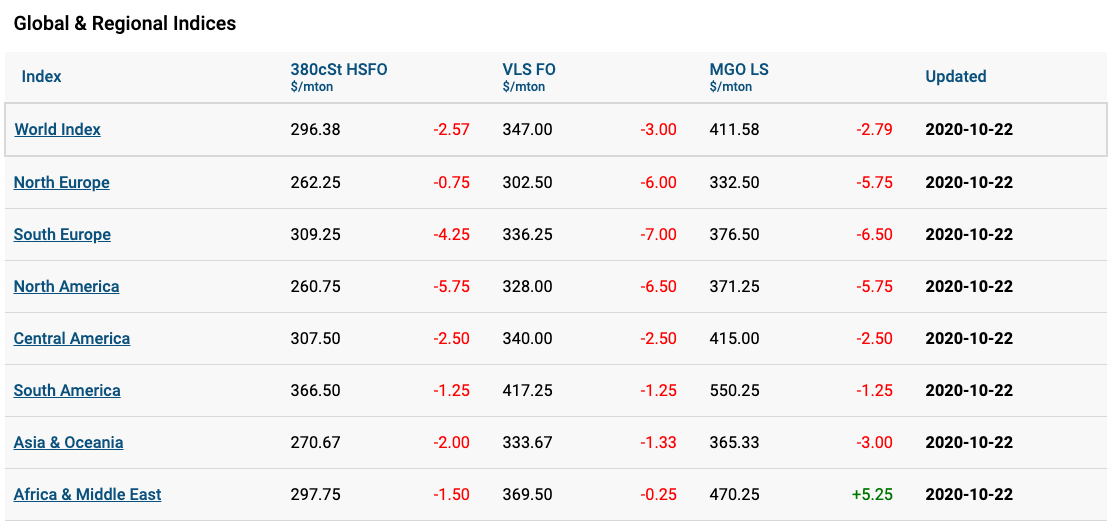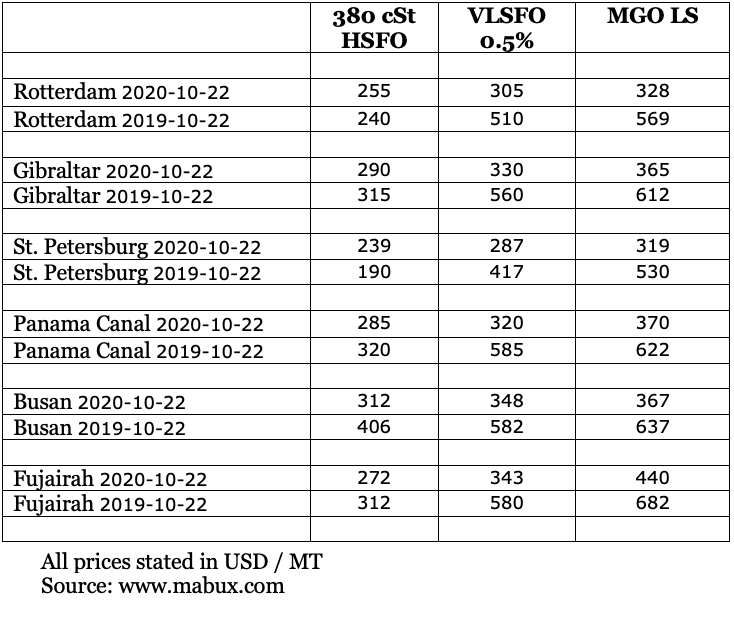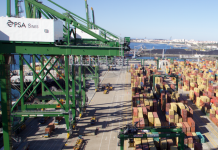High uncertainties about Covid-19 and the economic recovery continue to weigh on the fuel market and bunker prices, according to the courtesy of MABUX, which said, “It is clear now that 2020 would not be the year of oil market balance as the world still has a lot of excess crude and oil product stocks to process.”
The World Bunker Index MABUX turned into a slight downward trend for a week with the 380 HSFO index fell to US$296.38 / mt, VLSFO decreased to US$347 /mt while MGO declined to US$411.58 / mt.

At the same time, the Global Scrubber Spread (SS) (price difference between 380 HSFOs and VLSFOs) has narrowed by US$3.69 and averaged US$53.15.
The SS Spreads in Rotterdam and Singapore have largely converged, and on 20 October they were even equal at US$5. Additionally, SS Spread in Rotterdam has ranged during the week from US$57.00 down to US$50.00, while the average value of SS spread for the week has decreased to US$52.50.
In Singapore, SS Spread has also changed downward during the week and fell by US$5 to US$58, while the average weekly SS Spread has lost US$11.50.

European Commission has presented methane emission reduction strategy to set out measures to cut methane emissions in Europe and internationally, present legislative and non-legislative actions in the energy, agriculture and waste sectors.
One of the priorities under the strategy is to improve measurement and reporting of methane emissions, while the level of monitoring currently varies between sectors and Member States and across the international community.

Scrubber manufacturer Yara Marine Technologies has forecast that the market for exhaust gas cleaning systems (EGCS) will bounce back when the virus pandemic is brought under control. Yara also argues that there are not only commercial but also environmental benefits to using scrubbers rather than VLSFO, as the equipment helps to reduce other pollutants besides dealing with Sulphur and there has been no scientific evidence that scrubbers could damage the environment.
Bunker-One – America, a bunkering expert company, has estimated a net fall in bunker demand of 9.3% in Q2 2020 versus Q2 2019, but there have been sharp regional differences in the severity of the decline. The US Gulf Coast has taken a knock, with bunker demand down by 30%. The Panama and Long Beach/Los Angeles markets have each witnessed a 15% slump, the Fujairah and South African markets have fallen by 20%, and Hong Kong has experienced a 25% decline in demand.









